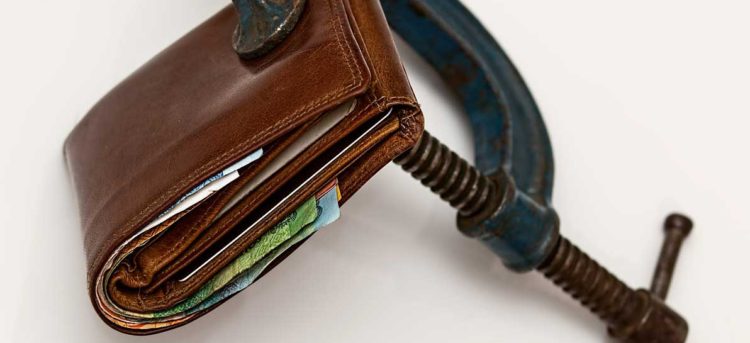In the previous post, we talked about collateral, personal guarantee and the legal procedures when you default on a loan. But how do lenders actually collect? This article explains the steps most lenders take when a loan becomes delinquent.
When you stop making your monthly payments, the lenders usually take the following steps to try to collect the payments:
- Make friendly phone calls asking for payment.
- Send friendly letters asking for payment, but with interest and penalties tacked on.
- Make nasty phone calls asking for payment.
- Send nasty letters asking for payment.
- Once it is severely delinquent (typically 90 days late) then the debt will go from customer service to debt collection, a different department. This is where they will start to negotiate settlements. They will settle for 80-100% of what’s owed. Sometimes this is where the debt hits your credit.
- It then gets transferred to the toughest department, the last department before they “charge off” the debt and sell it to a collector. Sometimes this department will offer up to a 50% discount if you pay in full. This is where the debt usually hits your personal credit, but the business credit would be destroyed long before.
- The debt is sold to a collector, usually for 10% of the face value of the debt. The debt collector will be nasty as hell and start threatening lawsuits right away. They will claim they need payment in full with all penalties. They will also pull your credit and do a bunch of research and asset searches to determine your ability to pay. Their research (which obviously they do not share with you), directly impacts what they do next.
- If they see you have great credit with credit card availability and assets, they will sue you. They will go for everything you owe.
If they see you have decent credit, with mostly maxed out credit cards and some assets, they will start getting serious about suing you. They will discount the value of the debt based on what they think you could realistically pay. - If they see your credit is hammered, and you’re late on your house payment, etc., and you don’t have assets, they will send mean letters and make nasty calls now and then, but they won’t really pursue you. They’ll monitor you over time to see if things change (you get back on your feet and start making payments), and then they’ll go after you as outlined above.
It’s worth noting that although the consumers are protected by FCRA, there are a few permissible purposes for which lenders can pull your credit reports without consent. In this case, because you owe them money, they can pull all your credit reports and do asset search to learn your ability of repayment without telling you. It’s a very bad idea to not pay the creditors if you have the means. Honesty is the best policy. After all, you owe them money.
Given the list above, if you have difficulty making monthly payments but could afford to paying something, it might be to your benefits to negotiate with the original lender before the debt is sold off to a professional collector. Your credit will still be shot, but you and your lender might ultimately get a better deal, all things considered.
This article was originally written on November 24, 2014 and updated on February 1, 2021.


Have at it! We'd love to hear from you and encourage a lively discussion among our users. Please help us keep our site clean and protect yourself. Refrain from posting overtly promotional content, and avoid disclosing personal information such as bank account or phone numbers.
Reviews Disclosure: The responses below are not provided or commissioned by the credit card, financing and service companies that appear on this site. Responses have not been reviewed, approved or otherwise endorsed by the credit card, financing and service companies and it is not their responsibility to ensure all posts and/or questions are answered.